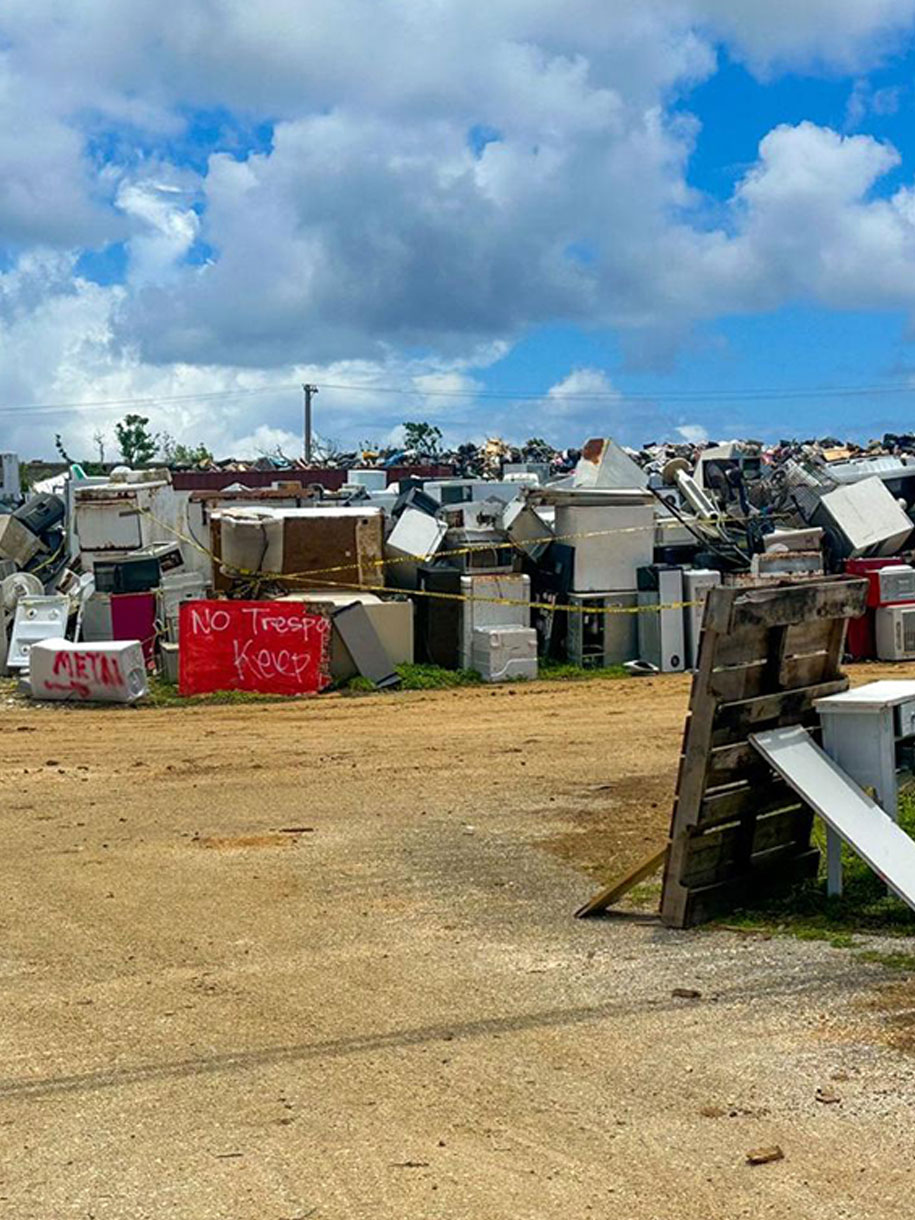By Oyaol Ngirairikl
Inflation ranks as the highest in a bevy of concerns some of the island's small business owners share, according to a recent survey conducted by Guam Business Magazine.
Thirty small business owners and managers responded to a series of questions related to the economies in the region. Of the respondents, 86% are located in Guam with 14% representing business owners/managers in the Northern Mariana Islands.
Regardless of location, a majority of respondents say they are concerned that local economies were headed in the wrong direction. External factors such as the rising cost of goods is a likely factor for those concerns.
When asked to rank a series of common issues, inflation ranked as the top concern with 93.3%. It is significantly higher than other concerns. It was followed by "retaining & hiring qualified employees" at 60%. Interest rates and government policies ranked third at 33.3% each.
A little over 10% of respondents added other concerns:
- People leaving Guam for job opportunities
- Pandemic recovery setback by Typhoon Mawar
- Shipping (costs)
- Cost and lack of reasonable ocean transportation in the NMI, and lack of adequate air transportation, and issues affected by labor with USCIS.

In a following question on concerns looking ahead to 2024, the level of concerns for the past year continues.
And again, three of the concerns showed up with tourism as the fourth issue.
- More people leave Guam for job opportunities and higher wage
- Return of tourism
- Shipping
- Cost and lack of reasonable ocean transportation in NMI, and lack of and adequate air transportation, and issues affected labor with USCIS.



Typhoons and pandemics aside, the challenge of finding and keeping an employee that is both qualified and capable of contributing to a small business remains the largest concern. Even before COVID-19 struck, the historic struggle to find employees who fit spurred educational programs in Guam and the NMI. Guam Community College and Northern Marianas College started tailoring programs that would help feed the workforce. And the GCA Trades Academy was created and the NMI has the Northern Marianas Technical Institute to help produce skilled workforce. And while the programs have been successful, human resources remains a challenge.
The small business community, 66% of whose members say they had to take out loans to get through the pandemic, also are worried that interest and inflation rates will increase next year.



Over the next year, what direction do you think interest rates will go?
- Decrease significantly: 0%
- Decease modestly: 6.67%
- Stay the same: 23.33%
- Increase modestly: 40%
- Increase significantly: 30%
Over the next year, what direction do you think inflation will go?
- Decrease significantly: 0%
- Decease modestly: 6.67%
- Stay the same: 16.67%
- Increase modestly: 36.67%
- Increase significantly: 40%
In the past year, small businesses have said increased cost of goods meant having to increase prices.
Respondents also note that the business environment has become more challenging in the past year without much relief as we look ahead to 2024.
For Guam, this is likely due to Typhoon Mawar. Guam businesses were directly hit by Typhoon Mawar so they felt the brunt of the impact. Businesses owner and managers in Guam said whatever strides had been made toward recovery, they were set back by the typhoon.
That is not to say that Saipan and the NMI weren't impacted as well considering most shipping routes as well as flights pass through Guam first. The typhoon shut down the Port Authority of Guam for a few days. The A. B. Won Pat International Airport, Guam was closed for about a week.
The typhoon also played a role in the decline that businesses reported on the survey.
Small business managers/owners who answered the survey also expect that in the next year they don't expect much growth in the business environment in Guam or the NMI. This sentiment runs parallel to issues raised by economist Claret Ruane, professor of economics at the University of Guam's School of Business & Public Administration. Earlier this year, on Jan. 12, just as the island was pushing past the COVID-19 pandemic and months before Typhoon Mawar, the Guam Chamber of Commerce held an economics forum.
“The private sector is the group that suffered the most during the pandemic," she said, according to Guam Business Magazine files. Ruane was also worried about a “stable” economy which describes an economy that doesn’t change year after year. “Basically, a zero-growth economy,” she said, which is where Guam was prior to 2019. Files show that 2019, the pre-pandemic reference point of growth of 2.6%, is going to be a “tough one to replicate” and higher than the average of 1.2%.
And yet, according to the Guam Business Magazine Small Business Survey 2023, 50% of respondents say the business environment will either stay the same or improve.
This is also reflected in responses to revenue levels for the past year and their thoughts in the coming year.
Through COVID-19, Guam and NMI governments have had to help individuals and businesses get through the storm. This help came in various forms from July 2022 to September such as the $100 per month power subsidy in Guam. In fact, this particular assistance was tied with the issue of housing in a question asking what respective government leaders should focus on in 2024:
- Continue power subsidy: 26.67%
- Increase education funding: 23.33%
- Increase affordable housing: 26.67%
- Increasing public safety: 23.33%





 facebook
facebook
 Whatsapp
Whatsapp



